The Age Of Accelerating Digital Change: Key Patterns For Winning
The practice of human resources development is global in nature, distinct in every country because it is embedded into its specific socio-cultural context as well as due to growing technological and demographic processes. It is recommended to follow emerging transformations within the HRM to remain competitive. This blog post presents 10 transformational trends which, according to the authors, need to be welcomed by the organizations.
#1. Remote Work Revolution
Remote work and hybrids are the new normal, and so the existing strategies of the HR departments should be revised. Such investments include technology, company and employee leadership & inclusion, facilitating and training for leaders, and how to work inclusively in remote settings. There was a heightened inclination to remote work due to the COVID-19 pandemic.
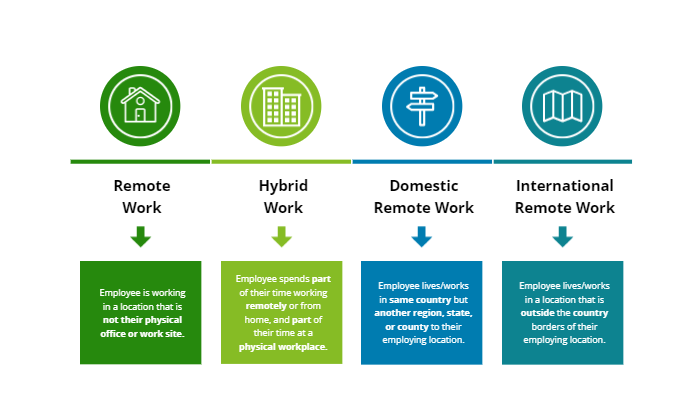
All organizations adopted the remote and later hybrid work models. The work culture was changed and HR technology was of great significance in this transformation. As per a survey by Deloitte, 80% of organizations allow hybrid or remote work culture.
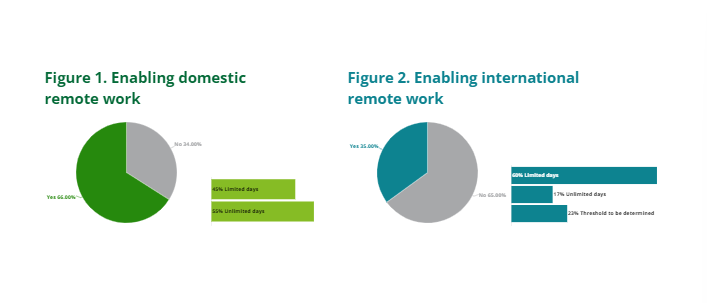
#2. Employee Experience
Employee experience comes far above other aspects while developing a culture and environment in the workplace. This includes customized onboarding, training and creating an environment that people can feel they belong to. HRTech is of great importance to the effective performance of the organization by way of automating labor-intensive tasks, optimizing processes, and analyzing data. Encompassing the entire spectrum of HR functions from recruitment and onboarding of employees to performance appraisal and employee retention, HRTech solutions improve operational performance and reduce costs by a significant margin. Thanks to AI-powered one-click automation, forecasts, and seamless interfacing with other enterprise applications companies can improve productivity and achieve business goals.
Read Visit HR Tech Blog: Top 10 Ways How AI & ML Will Help HRs
#3. Data-driven Decision-making
HRTech has extensive applications in the activity center of the organization to increase overall organizational productivity through functional activities that include task automation, business process design and implementation, and eloquent reporting. HRTech solutions can streamline processes from recruitment and onboarding to performance management and employee engagement and also reduce costs. Organizations can increase productivity and ultimately reach their strategic objectives by taking advantage of AI-based automation and predictive analytics, and by having seamless integration with other business systems.
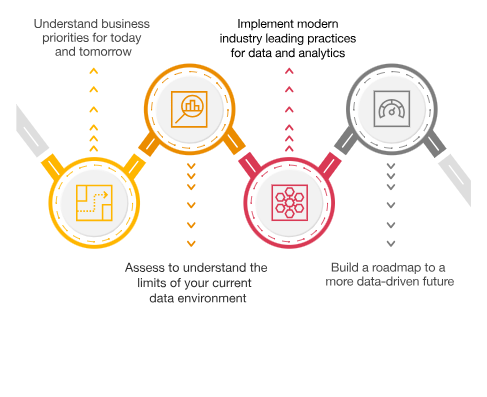
#4. Gamification
Gamification the use of game elements in HR can be a powerful tool for motivating and engaging employees. Points badge leaderboards, all forms of gamification. Gamification, the use of game design elements in non-game contexts, has become a vital aspect of the HR management system. Points, badges, leaderboards, and challenges, oh my, along with many other things, can lead to the improvement of employee engagement, employee motivation, and job satisfaction as a whole.
#5. Technology-Driven HR Solutions
HRTech, technological solutions for HR problems, has become a requirement for businesses to streamline operations, increase productivity, and enhance the employee journey.
HRTech encompasses a broad range of tools and systems that can include an applicant tracking system, a human capital management system, a learning management system, a performance management system, etc. These make daily activities more efficient, provide data intelligence, and facilitate optimal choices.
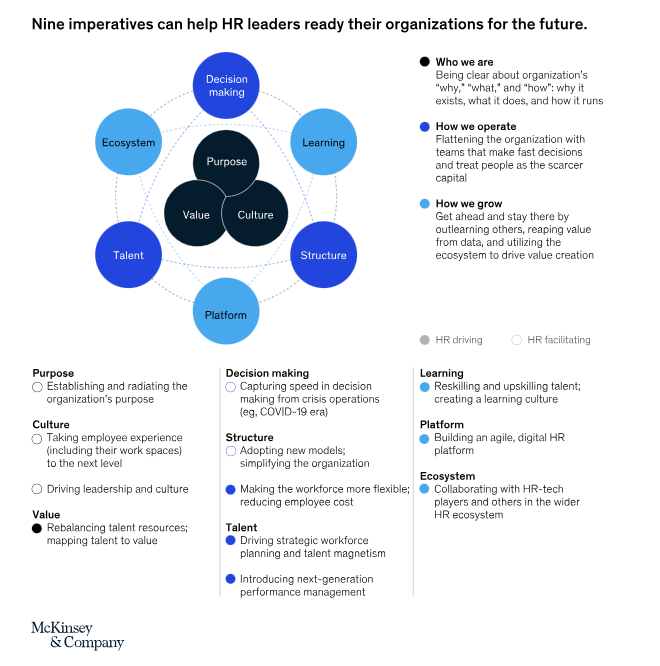
Read Visit HR Tech Blog: Top 10 Efficient Time And Attendance Tracking Systems
#6. Employee Engagement
Employees who feel engaged are more productive and tend to remain in the organization. HR needs to be concerned with the pressure of knowing the employee expectations, the employee feedback, and the employee experience in the workplace.
#7. Generative AI
AI has the potential to transform HR departments by streamlining processes, assisting in decision-making, and improving candidate selection and retention. Generative AI is rapidly emerging as a disruptive technology in the realm of human resources. Its ability to produce text, images, and code of a quality comparable to that created by humankind, has considerable impacts in numerous areas of HR, such as recruitment, onboarding, performance appraisal, and employee training.
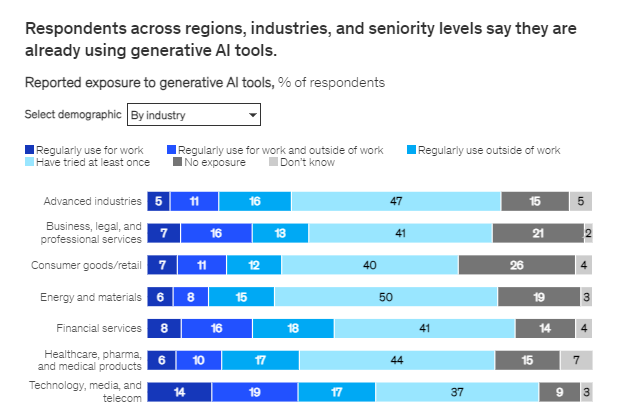
Other HRtech Trends
The HR Industry is led by various trends. There are more trends than the above-mentioned. Such as upskilling and reskilling, Blockchain, automation, etc.
#8. Upskilling and Reskilling
To stay competitive, firms have to commit resources to employee training to bring the employees up to the required standards. The advancement of global technology has drastically altered the landscape of the HR profession. To be effective in their roles, HR professionals have to continuously upskill and knowledge. Reskilling and upskilling are important for controlling the complexity of HR technologies and enhancing the performance of organizations.
#9. Blockchain
Blockchain technology offers enhanced security and efficiency for HR functions, particularly in payroll processing and data protection. Blockchain technology, known for its security, transparency, and immutability, is set to transform the human resources sector. Its decentralized structure and capacity to establish an unchangeable record of transactions make it particularly suitable for HR applications.
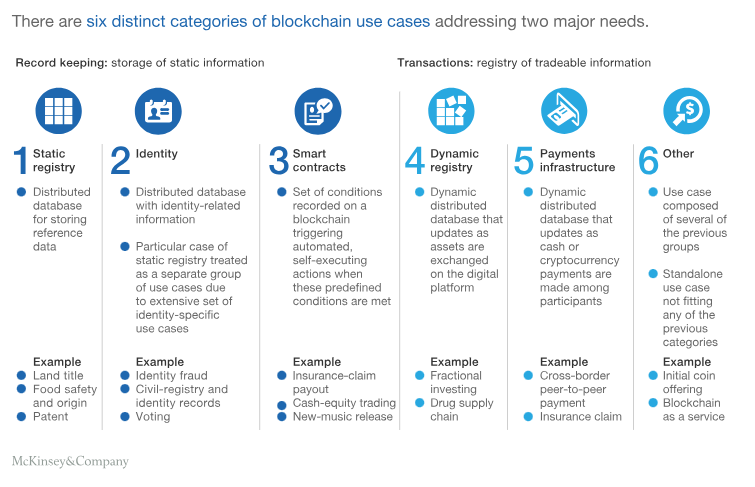
Read Visit HR Tech Blog: 10 HR Trends To Adapt In Business To Gain Traction
#10. Automation
The rise of automation has been a key driver to the development of the HRtech industry and is positively changing how HR departments work. Different HR processes such as the use of blockchain technology enhance security, payroll and data management, and overall effectiveness. This is due to the added security, visibility, and tamperproof nature of blockchain technology and the idea that it is going to completely revolutionize the face of human resource management. The fact that it is distributed and the fact that it can track interactions lends it especially useful in some aspects of the human resource function.
Additional Trends
#11. Redefined DEIB
Organizations should focus on creating inclusive workplaces that value diversity, equity, inclusion, and belonging. When it comes to HR technology, DEIB can be reinterpreted to include leveraging technology to foster more inclusive and fair HR practices.
#12. Corporate Sustainability
Organizations need to be more about creating an inclusive workplace that appreciates diversity, equity, inclusion, and belonging. Speaking of HR technology, DEIB can be expanded to mean using technology to create more inclusive and equitable HR processes.
More pressure for companies to be “green” in their HR management. Corporate sustainability is becoming a more prominent issue in this day and age, and human resource technology (HRTech) plays a vital role in the development of sustainable practices within corporations. HRTech allows organizations to reduce their carbon footprint, promote social responsibility, and enhance their image.
#13. Pay Transparency
Transparency in compensation can improve employee satisfaction and morale. One thing that is emerging as a hot topic in HR is pay transparency or the idea of making everyone’s salary information available to everyone. With the growth of technology, HRTech solutions will greatly assist the enforcement and maintenance of pay transparency policies.

#14. Adoption of AI
Beyond generative AI, AI can be used for various HR functions, such as talent sourcing and candidate screening. Artificial intelligence (AI) is quickly changing the HR landscape by automating tasks, enhancing decision-making, and improving the overall employee experience. From recruitment to performance management, AI is reshaping how HR departments function.
#15. Increased Productivity
HRTech is essential for boosting organizational productivity through task automation, process optimization, and insightful data analysis. Covering areas from recruitment and onboarding to performance management and employee engagement, HRTech solutions can greatly enhance efficiency and lower expenses. By utilizing AI-driven automation, predictive analytics, and smooth integration with other business systems, organizations can enhance productivity and reach their strategic objectives.
HRTech: The Leader Of The Work
Human Resources will need to be aggressive in keeping up with these trends for their companies to stay competitive and to attract and keep the best employees. Companies that are more focused on the well-being of their employees, that are open to technology, that promote diversity and inclusion, and that invest in their employees through training and development, will have thriving workplaces and will be successful organizations for a very long time.
With the workforce changing so rapidly, HR must adapt to these changes by using the new HR technology. AI, blockchain, and automation are all technologies that organizations can utilize to improve processes, make more informed decisions, and create a more stimulating and efficient place of work. These are not just competitive trends, but necessary ones to keep HR functions in line with the changing expectations of companies and employees in today’s digital age. Organizations that adopt these innovations will be poised for continued prosperity and foster a lively organizational culture.
To share your HR technology insights and announcements, please write to us at news@intentamplify.com



